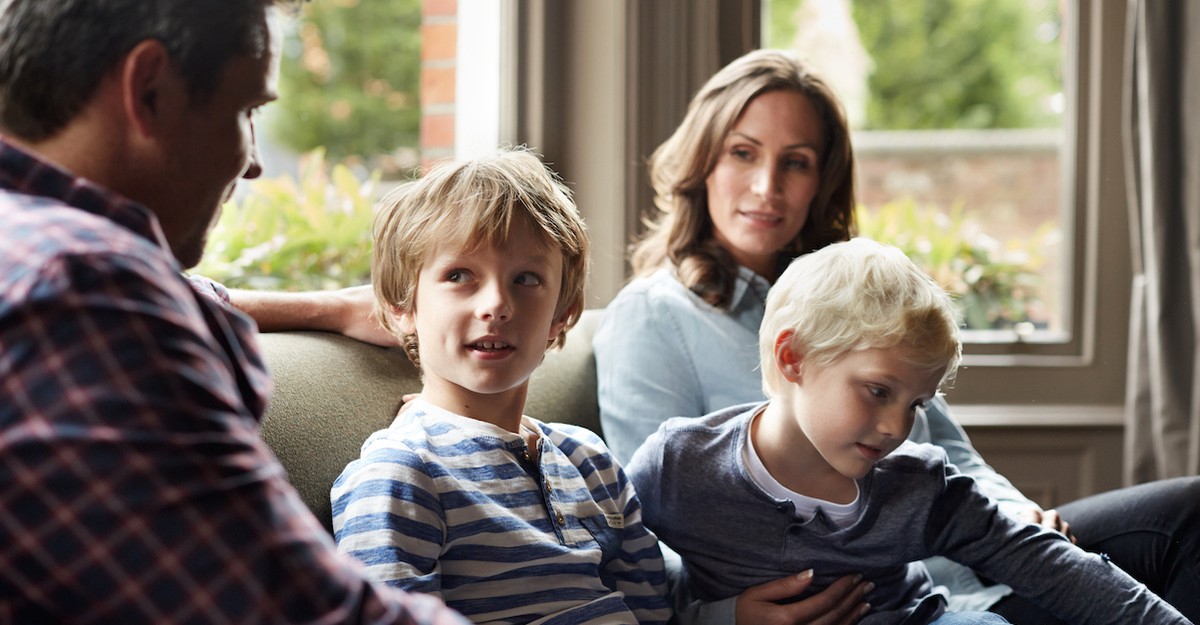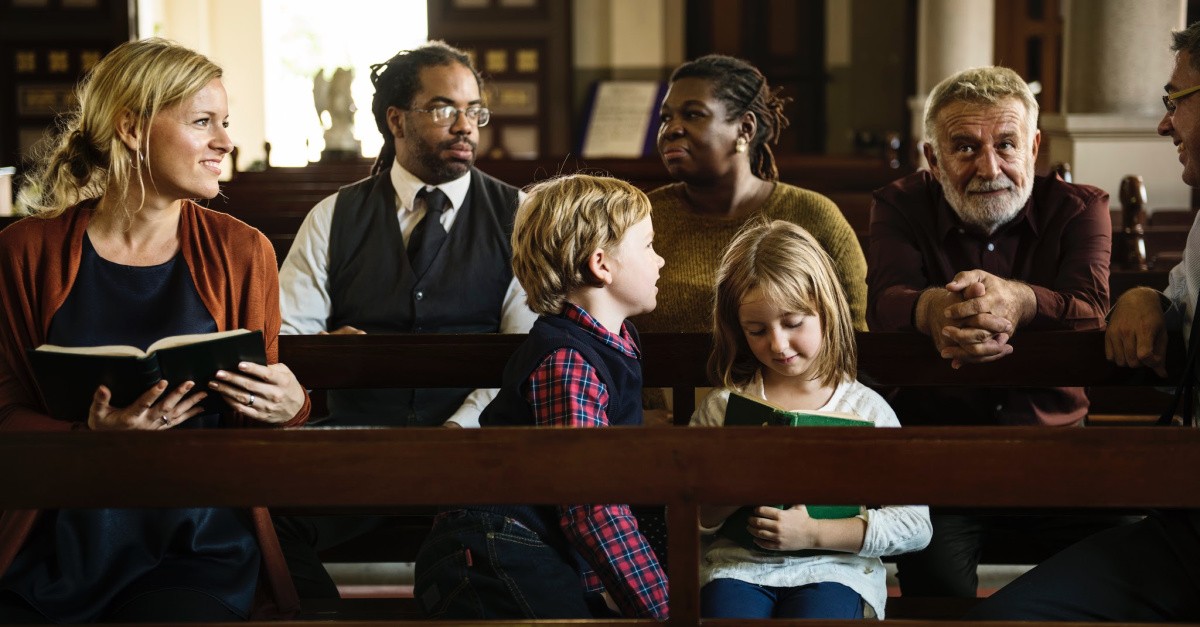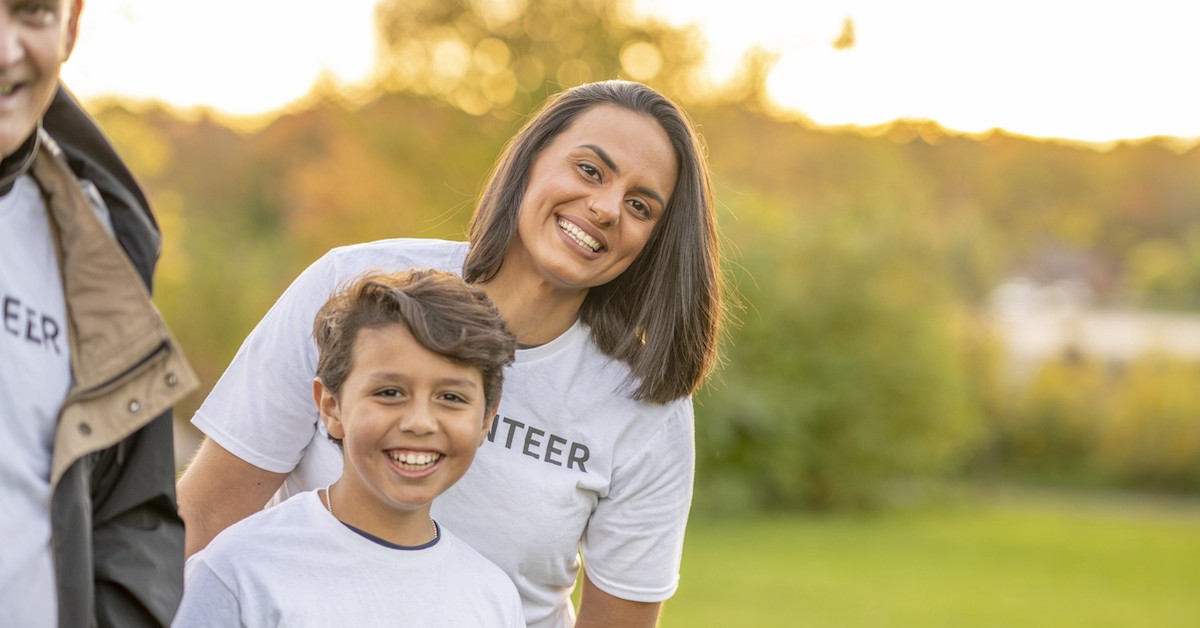
Many of us are used to walking in a world that seems to go against Christian values in so many ways. Popular music flaunts promiscuity and alcohol abuse like it’s a perfectly acceptable way of life.
Violent video games are the norm, and consumerism and materialism are on the rise. Even so-called family-friendly television shows or movies feature self-absorbed characters who use foul language.
For Christian parents trying to raise their children right in the world, it can feel like a battleground. Some parents attempt to shield their children completely from the secular world, enrolling them in private academies or homeschools and locking down all outside sources.
Others pray fiercely over their kids daily before sending them out into what can feel like an anti-Christian minefield.
Jesus understood how difficult it can be for those who belong to the Lord to walk in the world. He said time and again that believers are not immune from suffering and, indeed, will likely face persecution and hatred because of their godly beliefs.
As he said in Matthew 7:13-14, “Enter through the narrow gate. For wide is the gate and broad is the road that leads to destruction, and many enter through it. But small is the gate and narrow the road that leads to life, and only a few find it.”
If you’re a parent, the good news is there are a number of things you can do to raise your children in a way that honors God, and you can do this without walling them off from the world.
Here are nine ways to protect your kids from things that secular culture sneaks in.
Photo Credit: ©iStock/Getty Images Plus/shironosov

1. Set a Good Example
Proverbs 22:6 commands parents to “start children off on the way they should go, and even when they are old, they will not turn from it.” One critical way to do this is through leading by example.
Parents are their children’s first and most influential teachers. Even if they spend most of their days in a daycare, camp, or school setting, kids understand they are part of a core personal community stemming from their family at home.
Parents lead the way. Children naturally mimic what they see and hear. They learn to talk by example and read by example. And they absorb so much at extraordinarily young ages.
Many of us have been shocked to hear children repeat adult phrases, realizing they have been quiet observers of us all along.
Always understand that your children are watching and learning from you every hour of every day. You can model good behavior with kind words to others, good manners, Christian values, and more.
But you can also help protect your kids when they see what you don’t do — that you don’t participate in drunken parties, gossip or unkind talk, rampant consumerism, etc.
When you set an example of going to church, praying, putting God first, serving others, and reading the Bible, your children learn this is important and something they should do, too. This serves to protect them because it becomes their foundation, rooted in their upbringing.
Photo Credit: ©GettyImages/kupicoo

2. Go to Church
Going to church as a family is a huge way to protect your children from things secular culture sneaks in. First, it gives them a second home, their “church home.”
They will be exposed to other Christians outside their family who affirm and reflect what the family believes. They hear sermons and children’s messaging that help faith fully sink in.
How we spend our time shows what we prioritize. So even if everybody is incredibly busy, when they see the family taking time to go to church on Sundays and for activities throughout the week, they know that church is important.
Many parents with young kids might think going to church is a hassle when the kids are too young to understand, and perhaps assume they have plenty of time to establish church as a family ritual.
But when kids start to go to church when they are young, they accept this as part of the normal rhythm and routine of the family.
Going to church also might bring them into contact with other Christian children, which can be extremely helpful if they go to public school. Having a Christian community surrounding them as they navigate secular aspects of the world makes a difference and adds needed protection.
The Church is meant to help us as a body of believers. As we are urged in Hebrews 10:24-25, “And let us consider how we may spur one another on toward love and good deeds, not giving up meeting together, as some are in the habit of doing, but encouraging one another — and all the more as you see the Day approaching.”
Photo Credit: ©iStock/Getty Images Plus/urbazon

3. Pray Together and for Each Other
Praying together is an extremely important means to protect your children from the ways of the secular world.
First, model prayer for your children. They often get the message that independence is self-reliance, and they don’t understand how important it is that we all depend on God. Help them see dependence on God as a good thing. When you struggle with a decision or a fear, let them see you pray.
Next, get into the habit of praying as a family. Pray when you are worried or when you feel grateful. Pray before meals and at the dawn of a new day.
Pray “continually,” without ceasing, as we’re told in 1 Thessalonians 5:17. Ask your kids to pray for you when you feel grumpy or ill and pray for them in turn.
When they go out into the world, ask God to protect them, and believe God hears you.
Photo Credit: ©iStock/Getty Images Plus/monkeybusinessimages

4. Talk about Hard Things
Next, don’t shy away from talking about hard things, whether that is drugs and alcohol, war, or sex. Many of us think we need to shield our children from bad or harsh realities, but the truth is they sometimes learn about these things before we do, or when they are apart from us.
It’s good to let them know the truth — that sometimes, bad things do happen, but God is good. As Romans 8:28 tells us, “And we know that in all things God works for the good of those who love him, who have been called according to his purpose.”
Telling your children about the ways of the world isn’t wrong or bad. It gives you an opportunity to explain how you would like them to behave, such as forgoing toxic, illegal, and harmful substances or saving sexual relations for marriage.
This in turn protects them, for when they do eventually encounter difficult situations, they will be better prepared and equipped to seek the Lord’s way instead of the way of the world or the pressures of the crowd.
They can also be building blocks for talking about good things, such as God’s commandments to love others and keep him first.
As Deuteronomy 6:6-7 urges, “These commandments that I give you today are to be on your hearts. Impress them on your children. Talk about them when you sit at home and when you walk along the road, when you lie down and when you get up.”
Photo Credit: ©GettyImages/Prostock-Studio

5. Put God First
We know that keeping God first is critical. As Jesus told us in Matthew 22:37-38, the first and greatest commandment is to love God with all our hearts and with all our souls and with all our minds.
When we encourage our children to put God first, it plays a big role in their protection from the ways of secular culture. Society often sends a “me first” message.
But when we model, teach, and encourage putting God first, kids understand where their own priorities need to rest. They might still war with selfish desires — many of us do. But they’ll know the right way to live, and over time hopefully will learn to choose God over the world.
Photo Credit: ©Getty Images/Rawpixel

6. We’re Ambassadors for Christ
Children, preteens, and teens often struggle with their identity, but one thing you can make clear is that they have one ironclad identity chief above all: child of God.
When we realize we’re God’s child, we understand we don’t have to walk on the same path as everybody else. We’re supposed to be different.
We also have a critical job — representing our team. As 2 Corinthians 5:20 explains, “We are therefore Christ’s ambassadors, as though God were making his appeal through us.”
This self-knowledge protects our kids because it helps them remember they have a role to play in God’s kingdom. They are supposed to reflect the light of Christ and draw others to him.
When they realize others are watching them, it can serve as a protective measure, for they become less likely to do worldly things or heed secular messages.
Photo Credit: ©Getty Images/evgenyatamanenko

7. Do Good Together
Caring for others alongside your children is another way that protects your child from things secular culture sneaks in.
Secular culture preaches selfishness, but Christianity preaches loving your neighbor as yourself (Mark 12:31) and doing to others what you would have done to you (Luke 6:31).
Caring for our neighbors — whether people in our town or elsewhere — sends an important message to often self-absorbed kids: other people are important, too.
This protects them from a me-centered existence and steers them toward a life spent honoring God and heeding his commands.
Photo Credit: ©GettyImages/FatCamera

8. Cultivate Christian Friends
Other people in our world can have a huge impact on our morals and values. Do what you can to foster Christian friendships between your child and others.
Help them get involved with age-level groups at church. If you happen to know some of their friends are part of Christian families, encourage that relationship and do what you can to help it grow stronger.
Not all of their friends will necessarily be Christian, but it helps protect your child from secular dangers and values when they are surrounded by others of faith who can help them stay accountable and have a positive influence on them.
Photo Credit: ©Getty Images/monkeybusinessimages

9. Read the Bible Together
Teach your child to read the Bible at a young age. Get them their own age-appropriate Bible, and read the Bible as a family, too.
Sometimes, we can be lazy and leave it to other people — pastors or Bible study leaders — to tell us how to live. But the Bible is a wonderful gift to God’s people. It provides guidance and necessary information.
When we equip children to read the Bible for themselves and get accustomed to understanding it and relying on it for guidance, we help protect our children.
Ephesians 6 encourages us to “put on the full armor of God” (6:11), which includes “the helmet of salvation and the sword of the Spirit, which is the word of God” (v. 17).
So many dangerous ideas swirl around us daily, and secular culture often sends the district message that if it’s not hurting someone else, then it’s not a problem.
But we answer to God, not the world. These nine items help protect our children and help them stay in alignment with God, both now and always.
For further reading:
6 Ways to Help Children with Big Feelings
What Responsibility Do Parents Have in Raising Children?
7 Ways to Pray for Your Children
Photo Credit: ©iStock/Getty Images Plus/monkeybusinessimages

Originally published Friday, 03 November 2023.
